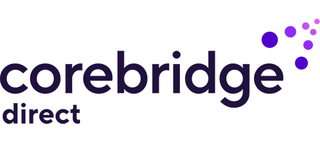Estate Planning Checklist
An estate plan is a valuable set of documents outlining plans for your assets and family after you die. While everyone’s needs differ, ensuring your property and family are cared for is essential. It also has tax benefits.
How do you start the process? This estate planning checklist includes the steps to take, including creating an inventory of your assets, deciding if you need an attorney, designating beneficiaries and more.
Table of contents
- What is estate planning?
- How does estate planning work?
- Who needs estate planning?
- A checklist for estate planning
- Can long-term care insurance protect my estate?
- Estate planning checklist FAQs
- Summary of Money’s estate planning checklist
What is estate planning?
Estate planning is the process of creating legal documents that outline the following:
- How to distribute your property after you die
- Who will get custody of your children and pets
- Who will make financial and medical decisions on your behalf once you can no longer make them yourself
In addition to this documentation, an estate plan can include life insurance and long-term care insurance policies.
The goal is to protect you, your family and your assets. It ensures your property is transferred to the appropriate people while limiting estate taxes to maximize the legacy you pass to your heirs. The tax burden can vary based on your estate’s value and your state’s tax threshold, with larger estates typically incurring higher tax bills.
Dying without a will is called dying intestate. If you die intestate, your state’s laws determine who gets your property and who gets custody of your children. An estate plan allows you to make these choices based on your wishes and your family’s best interests.
How does estate planning work?
An estate plan may involve a will, trust, power of attorney (POA) and health care directives. You can use an online service or work with various professionals — such as your financial planner, estate attorney and accountant — to create these documents.
Will
A last will and testament is a legal document that includes how to distribute your property after you die. You appoint beneficiaries and assign property to them. You might also name guardians of your pets and children within your will. Once the will is valid, you become the “testator” — the person who made a will.
If you die with a will, your executor — the person you designate to carry out your plan — files a petition to the probate court to ensure your will is valid and officially appoints the executor. Probate is the process of settling an estate and transferring property. The court assesses your assets and pays debts before distributing anything to your beneficiaries. Not all your assets must go through probate, but it depends on your state’s laws.
Trust
A trust is another legal instrument that transfers ownership of your assets to your beneficiaries. While a will takes effect after you die, a trust can become active during your lifetime, after you die or if you become incapacitated. Trusts allow you to be more specific about how to manage your assets. Additionally, trusts may not have to go through probate.
When you create a trust, you are known as the “trustor.” There are two types of trusts you can make. A revocable trust is one that you (as the trustor) can change or revoke after you sign it. In contrast, you can't amend an irrevocable trust except for certain circumstances.
Power of attorney (POA)
In estate planning, POA gives someone — called your agent or attorney-in-fact — the power over certain financial decisions when you can no longer make them yourself. For example, your agent may make decisions regarding taxes, property, financial accounts and other financial affairs on your behalf.
There are two types of POAs:
- Durable power of attorney: A durable POA goes into effect immediately once the document is signed and remains until you die or revoke it.
- Limited power of attorney: A limited POA (also called a springing power of attorney) goes into effect once certain conditions are met, such as when you become incapacitated, and expires once those conditions are no longer present.
During estate planning, you'll select one or multiple agents to represent you and create a document outlining the authority you’re granting. Select someone you trust; many choose family members, such as spouses or children.
Health care directives
Lastly, an important part of estate planning is specifying health care wishes using advance health care directives, also called medical directives. According to the American Bar Association (ABA), each state allows you to create legal documents specifying your medical preferences if you become incapacitated and cannot make decisions yourself. However, the laws around the types of acceptable documents vary.
Two common types of health care directives include:
- Living will: A living will includes a list of life-sustaining medical care you want or don’t want. This is different from the last will mentioned above.
- Health care proxy: A health care proxy is a document designating someone to make medical decisions on your behalf. Some states call this a medical or healthcare power of attorney.
Who needs estate planning?
A common misconception is that estate planning is only for wealthy individuals, but it’s for everyone.
“You especially need estate planning if you have minor children. You need a plan of who is going to take care of them and manage their finances until they are old enough to inherit. You have more control over this when you proactively plan,” says Shann Chaudhry, Esq., estate planning attorney in Texas.
The components of your estate plan may depend on your circumstances. For example, if you are young and don’t have children, you may only create a simple will and POAs. Discuss your needs with your estate planner to determine the best fit.
The age you start planning depends on your situation, but it’s helpful to do so before you expect you’ll need it. Chaudhry advises beginning the estate planning process around 30, but earlier if you have children.
A checklist for estate planning
1. Take inventory of your assets and liabilities
To start, inventory your possessions, including physical, financial and digital assets. Everything you own is part of your “estate.” You should also list any liabilities.
Include the following items in your inventory:
- Physical assets: real estate (homes and other land or property), vehicles (cars, boats, RVs, etc.), jewelry, artwork, family heirlooms, collectibles, antiques and more
- Financial assets: bank accounts, money market accounts and more
- Investments: stocks, annuities and more
- Digital assets: cryptocurrencies, online banking and investment accounts, social media accounts, emails, digital documents and photos, online storage accounts (i.e., cloud storage), websites and more
- Businesses: wholly or partially owned businesses
- Loans and debt: mortgages, lines of credit, personal loans, student loans, car loans, business loans, credit card debt and any other money you owe
Certain assets, like a retirement plan or life insurance policy, may not need to go in a will since they already name beneficiaries. However, it’s still a good idea to note that you have them.
2. Determine your family’s needs
Creating an estate plan helps ensure your family is taken care of. First and foremost, you must select guardians to take custody of your minor children or pets if you die. This individual may also manage the assets your child inherits.
Life insurance is another consideration. You pay premiums to your insurance company, and, in turn, the company will pay a death benefit to your beneficiary when you die. Buying a life insurance policy can give you peace of mind that your family will receive financial support after your death. Your family can use the payout to temporarily replace your lost income, pay debt, and more.
3. Decide if you need an attorney or use an online service to create your documents
Hiring an attorney can benefit many people, but an online service may be sufficient if you have a simple estate. Which option is right for you?
An attorney can help anyone create a legally sound estate plan, regardless of how much you own. They can also provide valuable advice throughout the process. To decide if you need one, consider your goals and assets. You may choose this route if any of the following are true:
- You have a large family
- You have minor children or children with special needs
- You own a business
- You want a trust
- You have other complexities to your estate
Will O’Rourke, Esq., wealth and estate planning advisor at Prime Capital Investment Advisors, suggests that most people get an attorney. He says, “Those that do not need an estate planning attorney are those people with estate values under $50,000, in my opinion. Those estates can pass through quickly in an expedited version of probate court.”
However, an online will service makes estate planning more attainable for many who can’t afford an attorney. These websites allow you to create legally binding documents, such as a will or trust. Many have attorneys available to answer questions.
You can also use an online service as a starting point. “Since most lawyers charge by the hour, you could choose to use an online tool and then simply run what you do past a lawyer at the end of the process. This can help with [the] cost for those who prefer to consult with a lawyer,” says Allison Lee, attorney and director of trusts and estate content at the estate planning website FreeWill.
4. Choose beneficiaries
Beneficiary designations of your will or trust are an important component of planning. Ultimately, choosing beneficiaries is up to you, but consider the people who depend on you.
Common choices are:
- Spouse
- Children or other dependents
- Other family members
- Charities or other organizations
You can select primary and secondary beneficiaries. A primary beneficiary is first to receive the designated assets, while secondary beneficiaries (also called contingent beneficiaries) are next in line if the primary beneficiary dies before you.
5. Choose an executor
The executor — also called personal representative — is responsible for carrying out your estate plan instructions. They will distribute your assets, notify creditors of your death, pay your outstanding bills and taxes and go through the probate process if required.
An executor has a lot of responsibility, so it’s important to choose someone you trust to dedicate the necessary time and energy. Many people choose a relative or friend, but another option is a third-party professional, such as your financial planner, accountant or lawyer. Before selecting someone as your executor, discuss it with them to make sure they accept.
You’ll also need to review the laws in your state. The individual must be a U.S. resident over 18 with no legal issues, such as felony convictions.
6. Review your state’s estate tax laws
Depending on your estate’s fair market value, it may be subject to federal or state estate taxes. These taxes are paid from your estate before your assets are transferred to your beneficiaries.
To determine your federal tax, the IRS considers your “gross estate” — the fair market value of your assets — plus the value of your lifetime taxable gifts and gift tax exemptions. Filing an estate tax return is only required if the total exceeds the year’s filing threshold of $12.92 million in 2023.
States can impose their own estate or inheritance tax, which are two different taxes based on who pays them. While the estate pays estate taxes, the inheritor pays an inheritance tax on the value of the assets they receive. Only 12 states and Washington, D.C., have estate taxes, while six have an inheritance tax. Maryland is the only state with both.
Here are the taxes by state, according to the Urban-Brookings Tax Policy Center:
- States with an estate tax: Connecticut, Hawaii, Illinois, Maine, Maryland, Massachusetts, Minnesota, New York, Oregon, Rhode Island, Vermont, Washington and Washington, D.C.
- States with an inheritance tax: Iowa, Kentucky, Maryland, Nebraska, New Jersey and Pennsylvania
7. Create a letter of instruction
It’s helpful to create a document containing further clarity for your executor. It can contain anything else they need to know, such as:
- The locations of your assets
- How you want your assets distributed
- How to access insurance policies
- Details about your accounts and how to access them (e.g., retirement accounts, IRAs, savings accounts and more)
- The locations of your property titles and other important documents
- Contact information they may need
8. Store your documents safely
Once your estate documents are complete, it’s time to store them in a safe place.
If you use an attorney, they may offer secure storage of your original signed documents. Otherwise, you can keep them in a bank safe deposit box or fireproof safe at home. Consider storing copies digitally as well, such as in cloud storage or on a hard drive.
9. Update your estate plan as needed
An estate plan is not a set-it-and-forget-it arrangement. You must update it after major life changes, such as getting married, getting divorced, having children or when a loved one dies.
Lee says one of the biggest problems she sees while practicing estate law is people failing to update their estate plans. She says that "far too many [people] leave it sitting static on the shelf, often leaving estranged spouses with unintended windfalls.”
Can long-term care insurance protect my estate?
As you age, you may require long-term care, such as medical and personal care, in an assisted living facility or nursing home. This is necessary for many individuals but can cost thousands of dollars per month.
The money you may pay for your long-term care later in life may come out of your estate, thus lowering how much you leave to your family. However, a long-term care insurance policy may help cover the cost of a nursing home or assisted living facility and preserve your legacy. The coverage is typically activated once someone requires supervision or assistance with activities of daily living (ADLs).
Many attorneys and financial planners, including Dominic James Murray, CEO and independent financial advisor at Cameron James, recommend adding this insurance to your estate plan.
“Long-term care insurance is an often-overlooked component of estate planning that can play a critical role in protecting your assets. The cost of long-term care can quickly deplete an estate, leaving little to pass on to heirs. By having long-term care insurance, you can help ensure that your estate is not consumed by these costs, preserving your wealth for your intended beneficiaries,” says Murray.
However, policies can be costly and may only fit some well, so discuss your options with your financial advisor.
Estate planning checklist FAQs
How much does estate planning cost?
Why is estate planning important?
If you die intestate (without a will), your state's laws would determine what happens to your property, and your family could run into legal problems. Most importantly, the court would determine who gets custody if you have kids and pets and haven't chosen a guardian.
What is an estate planning attorney?
What is the difference between a will and a trust?
Conversely, a trust is a more complex document that allows the transfer of your assets to your beneficiaries but with more specificity in terms of who gets your property and when. A will takes effect after you die, but a trust can go into effect when it's created. You may specify parameters around the distribution of assets in your lifetime, when you become incapacitated or after you die.
What are the two primary goals of estate planning?
Summary of Money’s estate planning checklist
Creating an estate plan can help preserve your financial legacy. The process involves creating legal documents describing how to distribute your assets after you die, who you want to make your medical and financial decisions, and who should be your children's guardians.
Your estate planning documents can vary based on your needs, but they typically include a will, power of attorney, medical directives and trusts.
You can hire an estate attorney to create your documents and offer legal advice, but it can be costly. An attorney will ensure your documents are legally appropriate in your state, help you make decisions and update your records as needed.
However, if you have a simple estate, you may be able to use an online service to create the documents yourself. Online services are more affordable but may only be suitable for some.
You can use our checklist to start your estate plan:
- Take inventory of your assets and liabilities
- Determine your family’s needs
- Decide if you need an attorney or use an online service
- Choose beneficiaries
- Choose an executor
- Review your state’s estate tax laws
- Create a letter of instruction
- Store your documents safely
- Update your estate plan as needed





